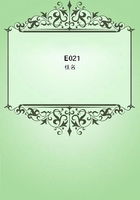
第26章
Being is the vast affirmative, excluding negation, self-balanced, and swallowing up all relations, parts, and times within itself. Nature, truth, virtue, are the influx from thence. Vice is the absence or departure of the same. Nothing, Falsehood, may indeed stand as the great Night or shade, on which, as a background, the living universe paints itself forth; but no fact is begotten by it; it cannot work; for it is not. It cannot work any good; it cannot work any harm. It is harm inasmuch as it is worse not to be than to be.
We feel defrauded of the retribution due to evil acts, because the criminal adheres to his vice and contumacy, and does not come to a crisis or judgment anywhere in visible nature. There is no stunning confutation of his nonsense before men and angels. Has he therefore outwitted the law? Inasmuch as he carries the malignity and the lie with him, he so far deceases from nature. In some manner there will be a demonstration of the wrong to the understanding also; but should we not see it, this deadly deduction makes square the eternal account.
Neither can it be said, on the other hand, that the gain of rectitude must be bought by any loss. There is no penalty to virtue; no penalty to wisdom; they are proper additions of being. In a virtuous action, I properly _am_; in a virtuous act, I add to the world; I plant into deserts conquered from Chaos and Nothing, and see the darkness receding on the limits of the horizon. There can be no excess to love; none to knowledge; none to beauty, when these attributes are considered in the purest sense. The soul refuses limits, and always affirms an Optimism, never a Pessimism.
His life is a progress, and not a station. His instinct is trust. Our instinct uses "more" and "less" in application to man, of the _presence of the soul_, and not of its absence; the brave man is greater than the coward; the true, the benevolent, the wise, is more a man, and not less, than the fool and knave. There is no tax on the good of virtue; for that is the incoming of God himself, or absolute existence, without any comparative. Material good has its tax, and if it came without desert or sweat, has no root in me, and the next wind will blow it away. But all the good of nature is the soul's, and may be had, if paid for in nature's lawful coin, that is, by labor which the heart and the head allow. I no longer wish to meet a good I do not earn, for example, to find a pot of buried gold, knowing that it brings with it new burdens. I do not wish more external goods, -- neither possessions, nor honors, nor powers, nor persons. The gain is apparent; the tax is certain. But there is no tax on the knowledge that the compensation exists, and that it is not desirable to dig up treasure. Herein I rejoice with a serene eternal peace. I contract the boundaries of possible mischief. I learn the wisdom of St. Bernard, -- "Nothing can work me damage except myself; the harm that I sustain I carry about with me, and never am a real sufferer but by my own fault."